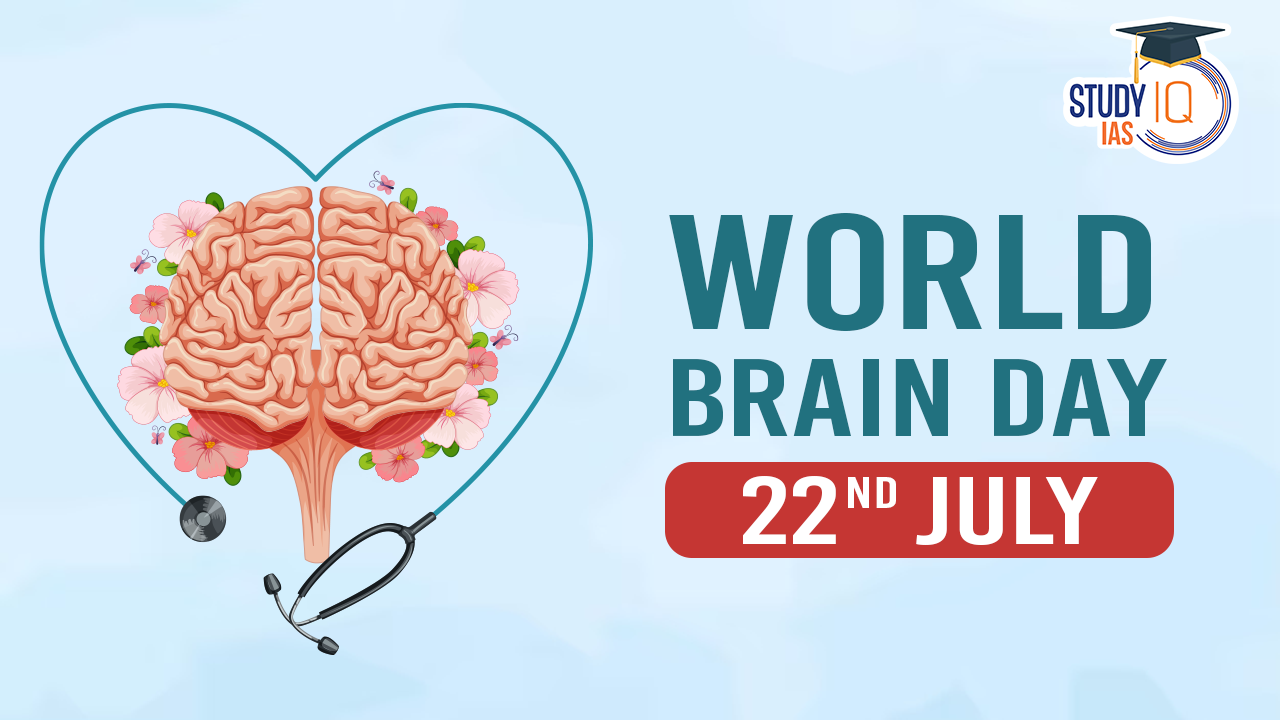Table of Contents
World Brain Day, also known as International Brain Day, is a significant global healthcare event observed annually on July 22. Established nine years ago, this day focuses on raising awareness about brain diseases and advocating for better healthcare, education, and research related to neurological conditions. Various organizations and communities worldwide come together on this day to emphasize the importance of brain health.
World Brain Day 2024 Theme
The theme for World Brain Day 2024 is “Brain Health and Prevention”. This theme focuses on proactively addressing risk factors for neurological diseases, emphasizing early detection and effective management, and disseminating global education on prevention strategies. The five key pillars of this theme are:
- Early detection and appropriate management to prevent neurological conditions.
- Providing global education on prevention for brain health.
- Ensuring that socioeconomic status and physical location do not impede prevention.
- Recognizing the critical roles of healthcare professionals, researchers, and politicians in meeting worldwide neurological requirements.
- Establishing brain health as a fundamental human right.
Importance of World Brain Day
In India, the burden of non-communicable and injury-related neurological diseases has more than doubled from 1990 to 2019, primarily due to the increasing elderly population. According to a 2019 research report, stroke (37.9%), headaches including migraines and tension-type headaches (17.5%), and epilepsy (11.3%) are the leading contributors to the neurological burden in India. Despite brain disorders being among the most expensive diseases globally and a leading cause of disability and death, funding for their prevention, treatment, education, and research remains limited compared to other diseases. Hence, raising awareness about brain diseases and prioritizing them for disease control is crucial.
Goals of World Brain Day
The five main goals of World Brain Day are:
- Awareness: Promoting brain health awareness on a global scale to enhance mental, social, and physical well-being and reduce disability associated with brain diseases.
- Prevention: Emphasizing that brain disabilities are preventable, treatable, and rehabilitative.
- Access: Ensuring access to quality care, treatment, rehabilitation, and assistive technology for brain health.
- Education: Fostering equality for individuals with cognitive impairments through education.
- Advocacy: Mobilizing global efforts to achieve optimal brain health.
Year-by-Year Themes for World Brain Day
- 2023: Brain Health and Disability: Leave No One Behind
- 2022: Brain Health for All
- 2021: Stop Multiple Sclerosis
- 2020: Move Together to End Parkinson’s Disease
- 2019: Migraine: The Painful Truth
- 2018: Clean Air for Brain Health
History of World Brain Day
World Brain Day was established on July 22, 2014, by the World Federation of Neurology (WFN). The idea was proposed by the Public Awareness and Advocacy Committee during the World Congress of Neurology (WCN) Council of Delegates meeting on September 22, 2013, and was enthusiastically embraced. The Board of Trustees approved the idea in February 2014, making it an annual event.
Measures for a Healthy Brain
To maintain a healthy brain, consider the following tips:
- Ensure a minimum of seven hours of sleep regularly.
- Exercise for at least two hours a day before bedtime.
- Take precautionary steps while driving, such as wearing a helmet or seatbelt.
- Seek medical attention for depression and anxiety.
- Avoid screen time two hours before bedtime.
- Refrain from consuming stimulants like nicotine and caffeine at least six hours before sleep.
- Maintain a healthy diet rich in green vegetables, beans, seafood, nuts, and seeds.
Conclusion
World Brain Day serves as a crucial reminder of the importance of brain health. By raising awareness, promoting education, ensuring access to care, and advocating for research, we can work towards a future where brain diseases are better understood, prevented, and treated. This year’s theme, “Brain Health and Prevention,” highlights the ongoing need for early detection, global education, and equitable access to brain health care.


 Utkal Divas 2025: Odisha Foundation Day ...
Utkal Divas 2025: Odisha Foundation Day ...
 List of Military Exercises of India 2024...
List of Military Exercises of India 2024...
 GPS Spoofing and Its Impact in India: A ...
GPS Spoofing and Its Impact in India: A ...





















